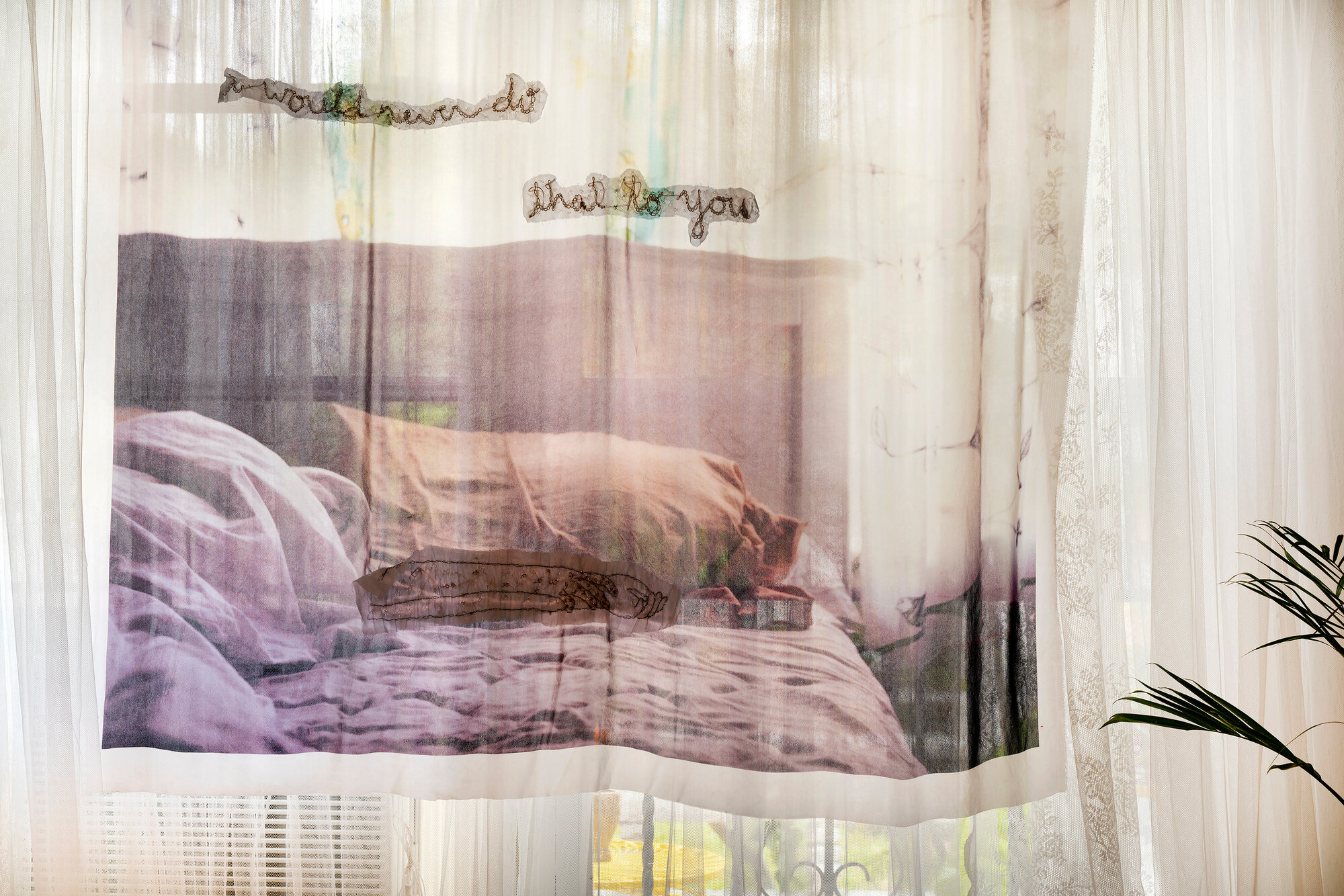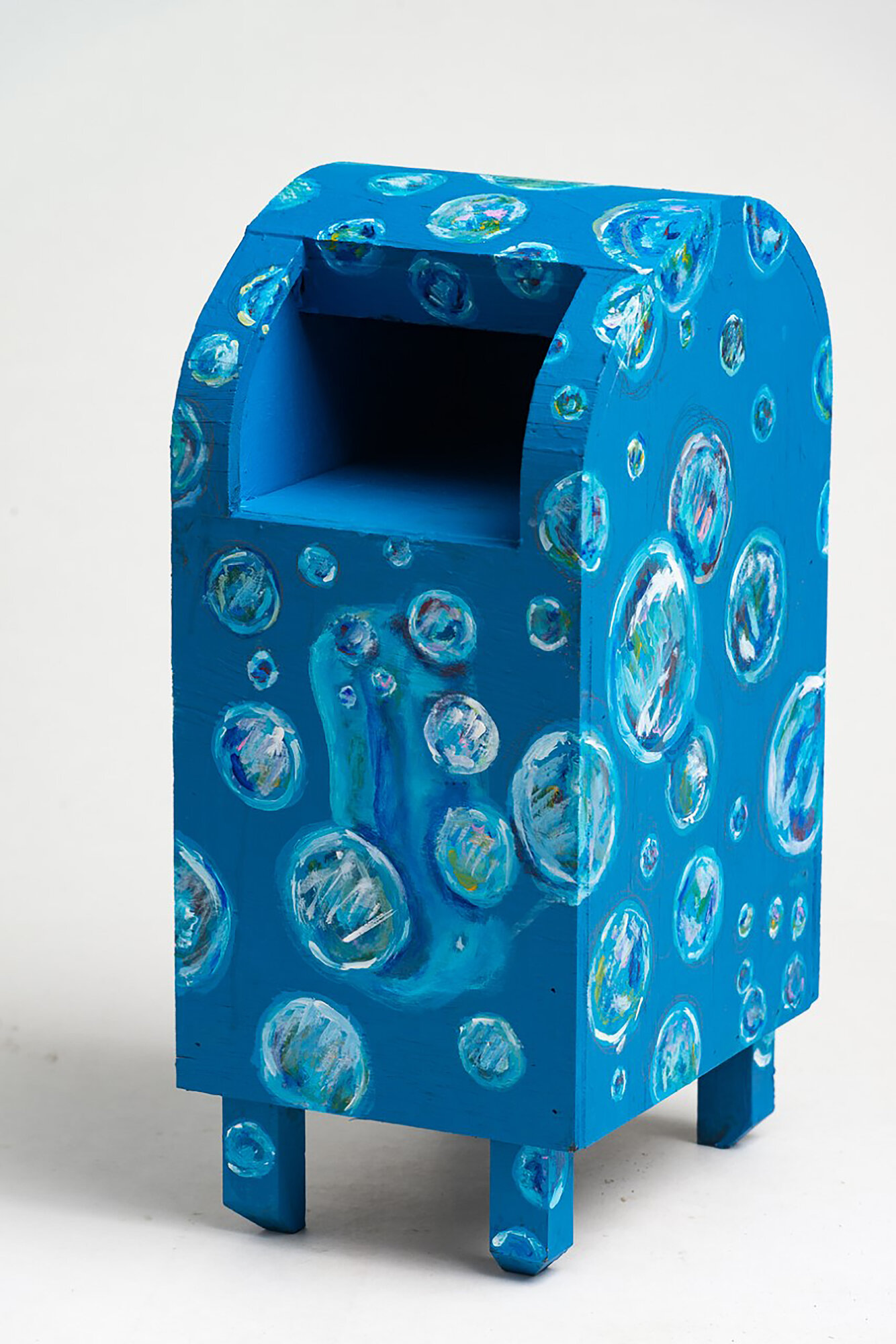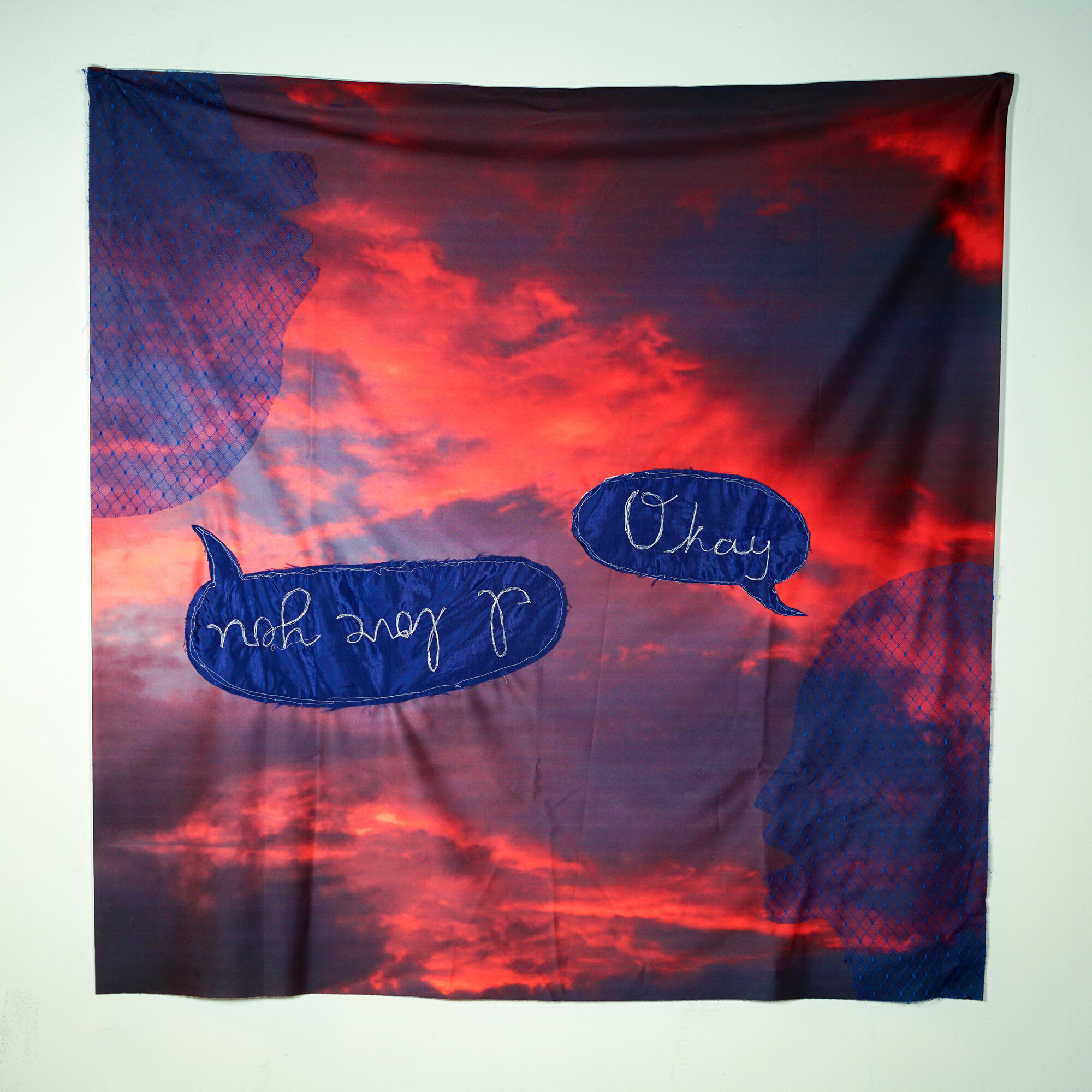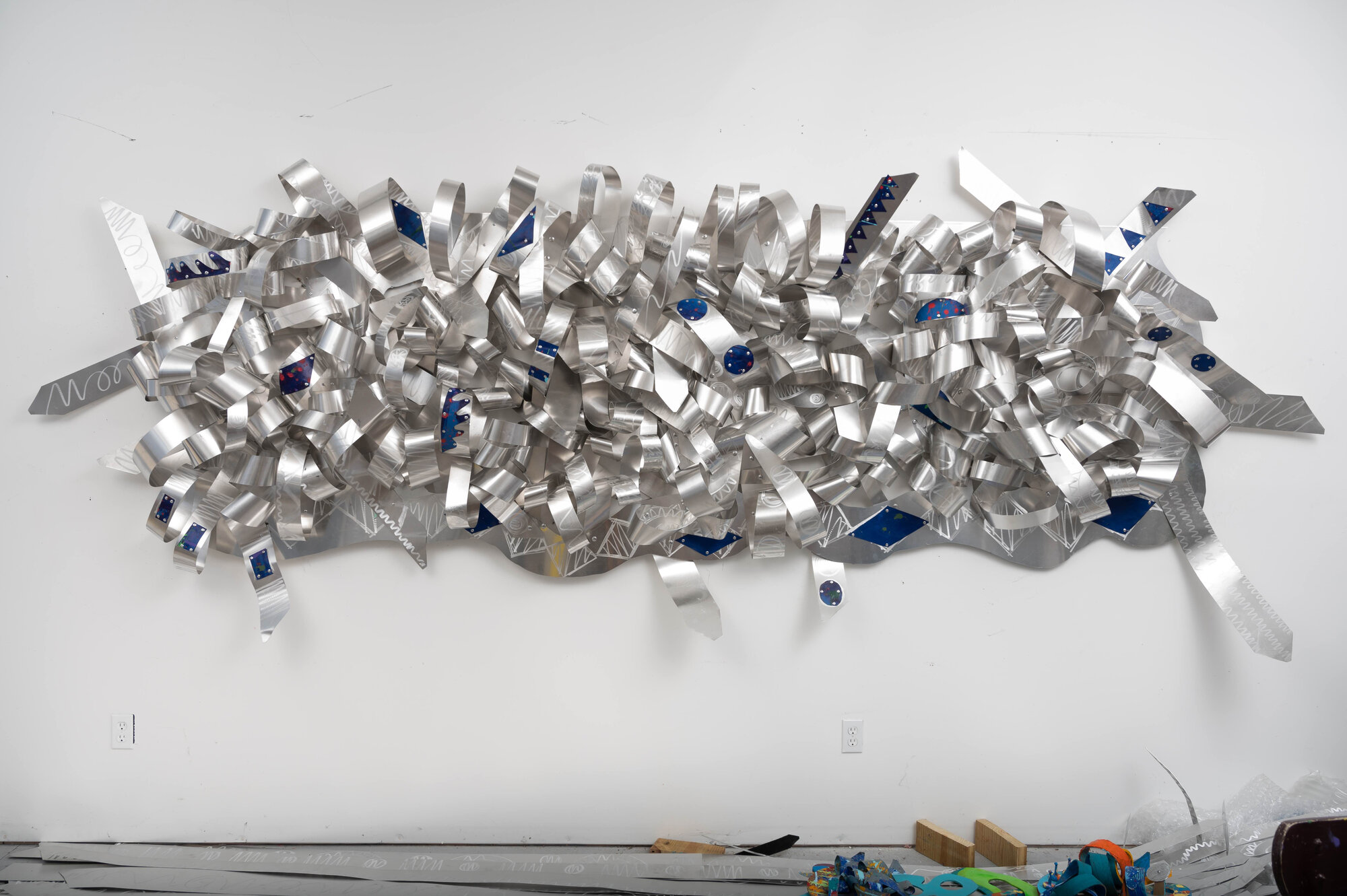Kevin Cole: Where Do We Go From Here? Gerrymandering and Voting, and Michelle Polissaint: Embodied Memories on exhibit Aug. 29-Nov. 1
Kevin Cole: Where Do We Go from Here? Gerrymandering and Voting packs painful history into a show that asks a painful question. It intertwines history with more immediate and urgent suppression efforts. In addition to obstacles to voting (amounting to impossibilities), the gerrymandering of legislative districts has in most cases diminished the voting power of African Americans in particular.
Cole explores the ongoing struggle against disenfranchisement and for the equal participation of African Americans in the divisive arena of contemporary politics. Cole recalls when he was 18 his grandfather pointed to a tree on his property where African American men were lynched by their neckties on their way to vote. The experience left a profound impression. Many of the works in Where Do We Go From Here? Gerrymandering and Voting employ the necktie as a symbolic component. For the Ballot Box Series, Cole started researching poll taxes and registering to vote in the South. When African Americans tried to vote, they would be asked crazy questions such as, "How many bubbles are in a bar of soap? How many jellybeans in a jar?" Cole asked friends to speak with their parents and grandparents about their experience in trying to vote. Ms. Earnestine Bradley from Ocoee, Florida, said three days before election day there would be a cross burning. The day before there would be a noose along with a sign, "It's best you not be hanging around here to vote." Others were asked, "How many seeds are in a watermelon?" Ms. Annie Mae Parker of Edgefield said she was asked, "How many black-eyed peas come in a bag?"
The Dirty South is a series of cutouts of Southern states where gerrymandering is an effective tool of diluting the Black vote and, consequently, Black representation. The areas where you see the dirt from that state is where voter suppression take place.
Karen Watson, director of the Sumter County Gallery of Art, notes this is an important exhibition - the history of Black voter suppression - on the eve of the presidential election. The exhibition is historical in nature, and South Carolina is central to this history. Eric Lachance, SCGA curator and assistant director, observes Kevin Cole's exhibition asks us to investigate the nuanced complexities of the American Experiment. Through works on paper, monumental aluminum forms and ballot boxes, Cole's work asks: Who do we disenfranchise when the scales are tilted, and by extension, what and who are we enfranchising in the process?
Cole earned a Master of Fine Arts from Northern Illinois University and a Master of Arts degree in Art Education from the University of Illinois. He maintained a career as an exhibiting artist while teaching art in the City of Atlanta Public Schools for more than 30 years. His artwork has been featured in more than 490 exhibitions and 4,000 public, private and corporate collections throughout the United States and abroad. His works are in public collections across the U.S., including the National Museum of African American History (Smithsonian Institution); the Corcoran Gallery Museum, Washington D.C.; The Ogden Museum of Southern Art, New Orleans, Louisiana; Pennsylvania Academy of Fine Art, Philadelphia, Pennsylvania; The High Museum, Atlanta, Georgia; The Phillips Collection, Washington, D.C.; and the Yale University Art Gallery.
Michelle Lisa Polissaint is a Haitian-American visual artist and arts organizer based in Miami, Florida. She holds a Bachelor of Fine Arts from Florida International University with a concentration in Photography - where she found her artistic essence - and fiber-based painting. She begins her Master of Fine Arts studies this fall at UNC Chapel Hill.
Her organizing practice is focused on overlapping art, community and activism. She encourages artists and community members to form collaborative relationships. As an artist, she explores the nature of human interaction through textiles and photographs. The Ballad of Me & You is a series of shots from different viewpoints retracing the stages of her successes and failures of her emotional sphere, looking for the light and the joy regardless of the positive or negative result of her experience, and she does it by photographing objects in which she appears as an absent "presence" marked by a thread that has a beginning but not an end - an outline of a body that used to be there. Her work has been shown internationally at various institutions including the Museum of Contemporary Art, Atlanta Contemporary and most recently La Villa du Parc. Polissaint's work at its most honest responds to her experiences. Utilizing photography, textiles and community engagement, her practice reflects the world through a Black, queer, Haitian lens - moments between sheets, a neighbor walking past, a lovingly prepared meal shared with friends and strangers. Through reflections on personal experiences, be it loneliness, injustice, heartbreak or the ephemeral, intangible feeling of a light breeze or a break in the ocean, it is Polissaint's hope that her work connects to the broader and unifying experience of being human.
Eric Lachance notes Polissaint's work evokes the fleeting moments of being human. Her photography and paintings on ephemeral and diaphanous textiles invoke in the viewer the common ground that are our very emotions.
The opening reception for Where Do We Go from Here? Gerrymandering and Voting and Embodied Memories will be held 5:30 to 7:30 p.m. Thursday, Aug. 29, at the Sumter County Gallery of Art, 200 Hasel St., with both artists in attendance. Kevin Cole will give his artist talk Saturday, Oct. 12, from 1 to 3 p.m., and Michelle Polissaint will give her artist talk Saturday, Oct. 19, from 1 to 3 p.m.
Everything we do is a community effort, and we could not do this without our sponsors and board members. Thanks to Pastor and Mrs. Ralph Canty, State Farm - Ben Griffith and Tammy Kelly, GRAYCO LLC, Deas Law Firm and Dr. Kendall Deas, Chip and Tammy Finney, Susan and James Allen, Rep. and Mrs. J. David Weeks and Weeks Law Office, Saroor Farooqi and Angela Burleson, and Hill Plumbing.
More Articles to Read








